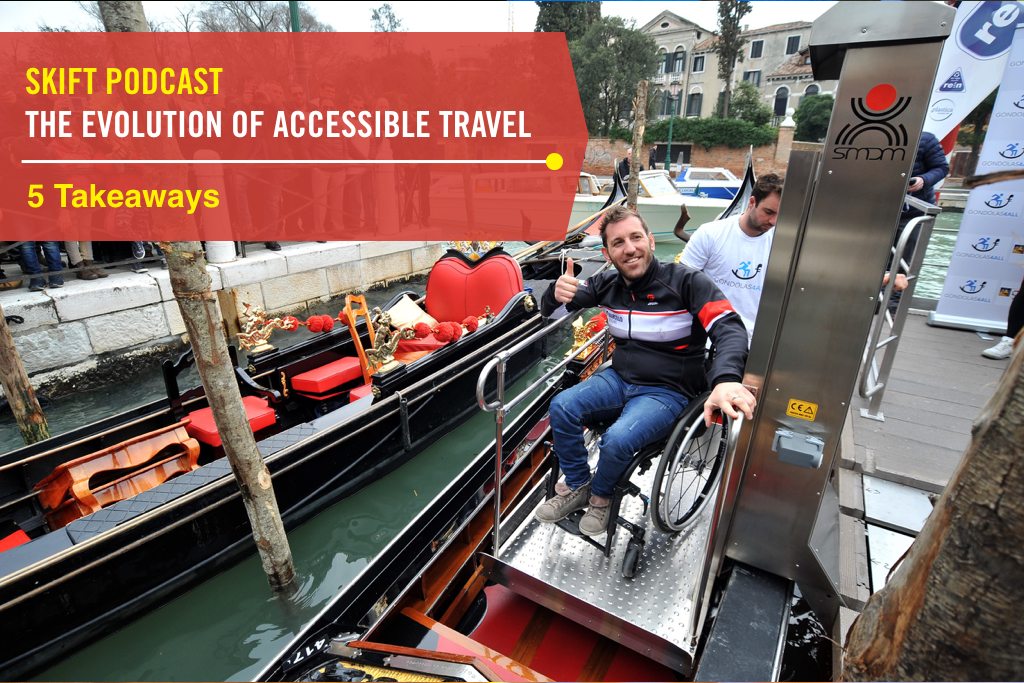The Evolution of Accessible Travel: 5 Podcast Takeaways

Skift Take
For a recent episode of the Skift Podcast, we looked at the experiences of travelers with disabilities. For many companies, accommodating customers with disabilities is a legal obligation, but the companies that do more are better satisfying their customers and capturing this sizable market share — according to the Open Doors Organization, adults with disabilities in the U.S. spend $17.3 billion a year on leisure and business travel. Over the two years before the study, 26 million adults with disabilities took 73 million trips.
Our guests included Peter Slatin, founder and president of Slatin Group, which provides education and training to help businesses — including many in travel — improve interactions with clients who have disabilities. His program Elements of Service: Serving Guests with Disabilities also recently went online through the American Hotel and Lodging Educational Institute.
Also with us via Skype was Brett Heising, CEO of brettapproved.com, a travel and entertainment review site for users with physical disabilities or mobility impairment. Through a travel agency partners
